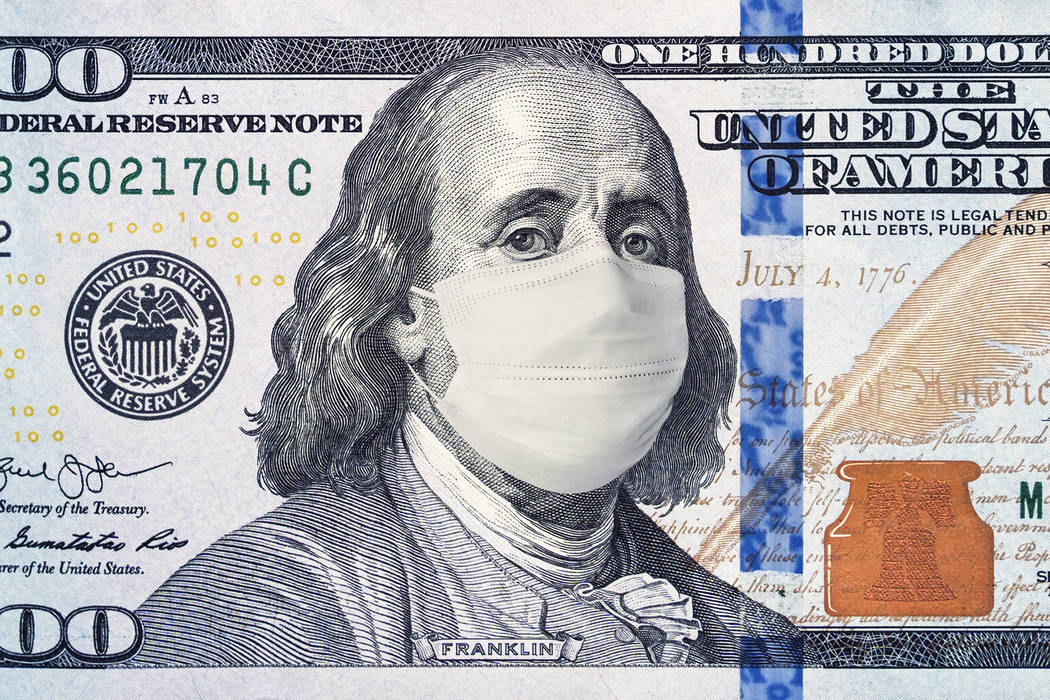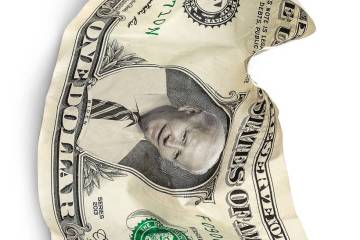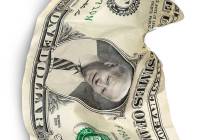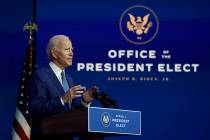RICHARD A. EPSTEIN: Avoid redistribution schemes to limit coronavirus fallout
Anything specific about the social responses and economic consequences of the coronavirus is likely to be obsolete 24 hours after it is written, so dizzying the rate of change. Nonetheless, it is useful to offer some general principles to guide the inquiry.
The short-term is critical. Every day is marked by cancellations of major events that cause much personal inconvenience and a huge dent in the income of airlines, railroads, hotels, universities, sports teams and much more. We can announce that these events will not be canceled, but just postponed, in the hope that what is lost today can be regained tomorrow.
Don’t bet on it. There are two kinds of goods in this world. Those that can be stored and those that cannot. Thus, an automobile manufacturer facing a strike can stockpile cars to help weather the shutdown. But if urban transit workers go on strike, the dire effects are instantaneous. Passengers will not double up on their transportation once the strike is over. Those trips are lost forever, and the revenue and operational losses for sports teams, airlines and cruise ships will not be recouped.
The coronavirus is not a strike. Instead, it strikes at everywhere and everyone at the same time. So what then should and should not be done? The list of don’ts is a lot easier to put together than the list of do’s. And they all have one common characteristic: Don’t try to cushion the blow for anyone with some novel redistribution or compensation scheme. Here are three variations.
First, no grand economic solution is able to handle the obvious slowdown in current operations. President Donald Trump first wanted a reduction the payroll tax, but his critics preferred targeted tax credits to persons of limited means or with large losses. Trump then pivoted to a rescue plan to dole out $50 billion in loans to hard-hit industries. Both will turn out to be both too little and too late.
Tax reductions take too long to kick in. If loans are needed, better through the private sector than an elaborate government program, which won’t know which industries and firms to target. Nor are interest rate adjustments likely to soften the short-term emergency. The system will take too much time to put up and will yield too little in return. The Bush stimulus plan didn’t work in 2008, and no variation on a bad idea will work today.
Second, no system of private compensation works for the victims who have suffered by the coronavirus. Historically, it has been widely understood that proof of causation for any disease is impossible to trace. People get into contact with hundreds of people, anyone of whom could have spread the disease to anyone else. Indeed, cases of multiple exposures from multiple persons often prove the norm. Thus, unlike an accident or slip-and-fall case, the law lacks the short and clear causal chain needed to make a liability system work over thousands of unique events. Never start a journey that you cannot finish.
Third, no public compensation system works either. These are major projects that easily get overwhelmed by trying to decide which individuals get what kind of funding. Instead, use existing compensation systems — both public and private — for health coverage and workers’ compensation, which have ready-made rules in place to deal with these situations.
Programs for redistribution and redress fail. So what should be done instead? Implement only those programs that bring the spread of the disease to a halt as quickly as possible. There are three components to the approach.
First, take aggressive public action to stop the spread of known cases. The word quarantine brings forth a sense of dread because of the massive intrusion that upends private lives. But the coronavirus is not AIDS, which spread only through sexual contact or blood exchanges. This virus is airborne, so that the obvious self-help remedies that worked with AIDs will fail here. One person can spread a disease to many — thus the institutional need for protection. And here, at least, there is a defined population system that allows for a kind of public assistance in getting over the rough patch. And a similar program can and should be put into place to cover the costs of testing for those without insurance. The subsidy to the private person is justified by the ability to prevent the harms to others.
Second, a government with plenary legal powers has only limited practical means to respond to crisis. Much of the real burden on dealing with the coronavirus is done through intermediate institutions — businesses, schools, hospitals and clubs — which can wash down walls, put up Purell dispensers, grant sick leave, limit travel, provide for remote work and learning. Thankfully, the internet becomes a key tool for combating losses. Like everyone else, I have received countless work-related notices and instructions, virtually all of which bring credit on their authors. These tailored decentralized responses explain why we should never want a single-payer system of health care: Its sluggish responses would increase the human and economic toll of this or any future health epidemic.
Third, there is individual self-help. To be sure, these can be deadly if infected people knowingly expose others to risk by going to work or flying home. But the sheer bulk of these calibrated responses will help slow down the rate of spread of diseases. Right now, people stay out of crowded places, avoid public transportation, cancel trips, wear latex gloves, wash their hands repeatedly and even self-quarantine themselves. Individually, these self-centered actions might not seem to amount to much. Taken as a whole, they might just alter the arc to slow the spread of the coronavirus. Best of all, these various approaches are self-enforcing. People will comply for the strongest of reasons — self-preservation — which could help everyone get through the emergency as quickly as possible.
The bottom line: No on redistribution and redress. Full speed ahead on prevention, containment and elimination.
— Richard A. Epstein is a professor at the New York University School of Law, a senior fellow at the Hoover Institution and a distinguished service professor of law emeritus and senior lecturer at the University of Chicago. His Review-Journal column appears quarterly.






















